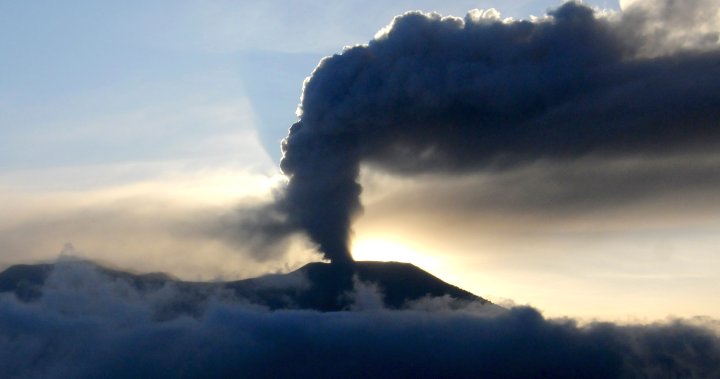Rescuers searching the hazardous slopes of Indonesia’s Mount Marapi volcano found 11 more bodies of climbers who were caught by a surprise weekend eruption, raising the number of confirmed dead to 22, officials said Tuesday. One person remained missing.
More than 50 climbers were rescued after the initial eruption Sunday, and 11 others were initially confirmed dead. New eruptions on Monday and Tuesday spewed more hot ash as high as 800 meters (2,620 feet) into the air, reducing visibility and temporarily halting search and recovery operations, said Abdul Malik, chief of the Padang Search and Rescue Agency.
The bodies of two climbers were located on Monday and nine more on Tuesday, the National Search and Rescue Agency said.
One climber remained missing and was presumed dead because of being very close to the eruption site, said Edi Mardianto, the deputy police chief in West Sumatra province.
The recovered bodies will be taken to a hospital for identification, he said.
The rescuers contended with bad weather and difficult terrain, along with winds that brought heat from the eruptions.

A video released by West Sumatra’s Search and Rescue Agency showed rescuers carrying an injured climber on a stretcher off the mountain and into a waiting ambulance to be taken to a hospital.
Marapi has stayed at the third highest of four alert levels since 2011, indicating above-normal volcanic activity under which climbers and villagers must stay more than 3 kilometers (1.8 miles) from the peak, according to Indonesia’s Center for Volcanology and Geological Disaster Mitigation.
Officially, climbers were only allowed below the danger zone and had to register at two command posts or online. However, local officials acknowledge that many people may have climbed higher than permitted and villagers may also have been in the area, making the number of people stranded by the eruption difficult to confirm.
Marapi spewed thick columns of ash as high as 3,000 meters (9,800 feet) in Sunday’s eruption and hot ash clouds spread for several kilometers (miles). Nearby villages and towns were blanketed by tons of volcanic debris that blocked sunlight, and authorities recommended that people wear masks to protect themselves from the ash.
A woman hangs her laundry to dry as Mount Marapi spews volcanic ash from its crater, in Agam, West Sumatra, Indonesia, Tuesday, Dec. 5, 2023.
AP Photo/Givo Alputra
About 1,400 people live on Marapi’s slopes in Rubai and Gobah Cumantiang, the nearest villages, about 5 to 6 kilometers (3 to 3.7 miles) from the peak.
Marapi is known for sudden eruptions that are difficult to predict because the source is shallow and near the peak, and its eruptions are not caused by a deep movement of magma, which sets off tremors that register on seismic monitors.
Marapi has been active since a January eruption that caused no casualties. It is among more than 120 active volcanoes in Indonesia, which is prone to seismic upheaval due to its location on the Pacific “Ring of Fire,” an arc of volcanoes and fault lines encircling the Pacific Basin.
Associated Press writer Edna Tarigan in Jakarta, Indonesia, contributed to this report.
© 2023 The Canadian Press




